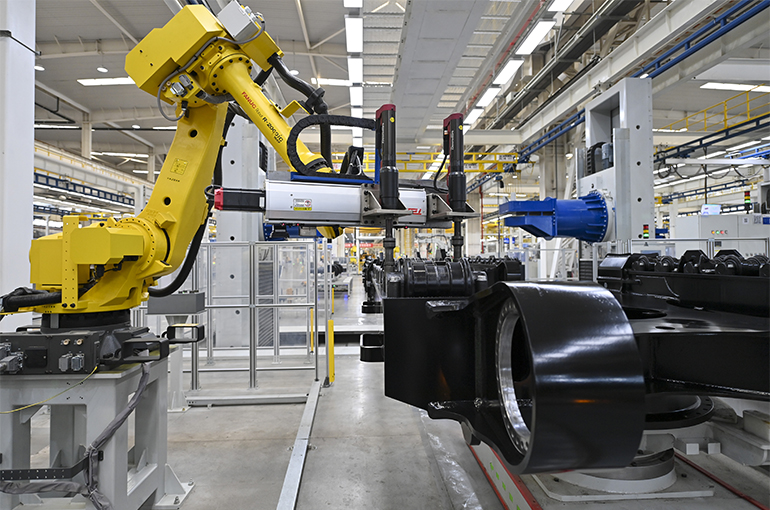 China’s Factory Activity Hits Thee-Year High in June, Caixin PMI Shows
China’s Factory Activity Hits Thee-Year High in June, Caixin PMI Shows(Yicai) July 1 -- Activity in China’s manufacturing sector increased for the eighth straight month in June to the most in three years, driven by increased production, according to a closely-watched private survey.
The Caixin manufacturing purchasing managers’ index was 51.8 last month, up from 51.7 in May, data released today by financial media group Caixin showed. That was the fastest pace of growth since June 2021. A reading above 50 indicates expansion.
The gauge diverged from the PMI published yesterday by the National Bureau of Statistics, which remained unchanged at 49.5 and stayed in contraction territory for the second consecutive month.
Supply and demand continued to increase last month, with the production sub-index expanding for the fifth month in a row. The new orders sub-index remained in the expansion territory but fell to the lowest in six months, showing a slight weakening in demand in overseas markets.
Employment has stabilized overall, with the relevant sub-index standing just below the 50 benchmark but remaining in the contraction territory for the 10th straight month, mainly due to resignations and layoffs. Boosted by demand for an increase in production, the expansion rate of employment for last month almost offset the layoff rate.
The sub-index for expectations on production and operations fell to a record low since December 2019. The optimism of entrepreneurs in the manufacturing sector prominently weakened, with them mainly being worried about the pressure of the downward economy, which remains great, and the fierce market competition.
The manufacturing sector’s prosperity index is still on an upward track, but insufficiency in market confidence and shortage of effective demand are huge challenges to the economy, said Wang Zhe, senior economist at Caixin’s think tank. Looking ahead, policies’ support targeting the economy still needs further strengthening, and pre-stage policies also need to be implemented to see an effect, Wang added.
In addition, advancing policies relevant to financial and tax-related reforms should especially focus on fostering the optimistic expectations of the market’s operating entities, Wang pointed out.
Editor: Martin Kadiev